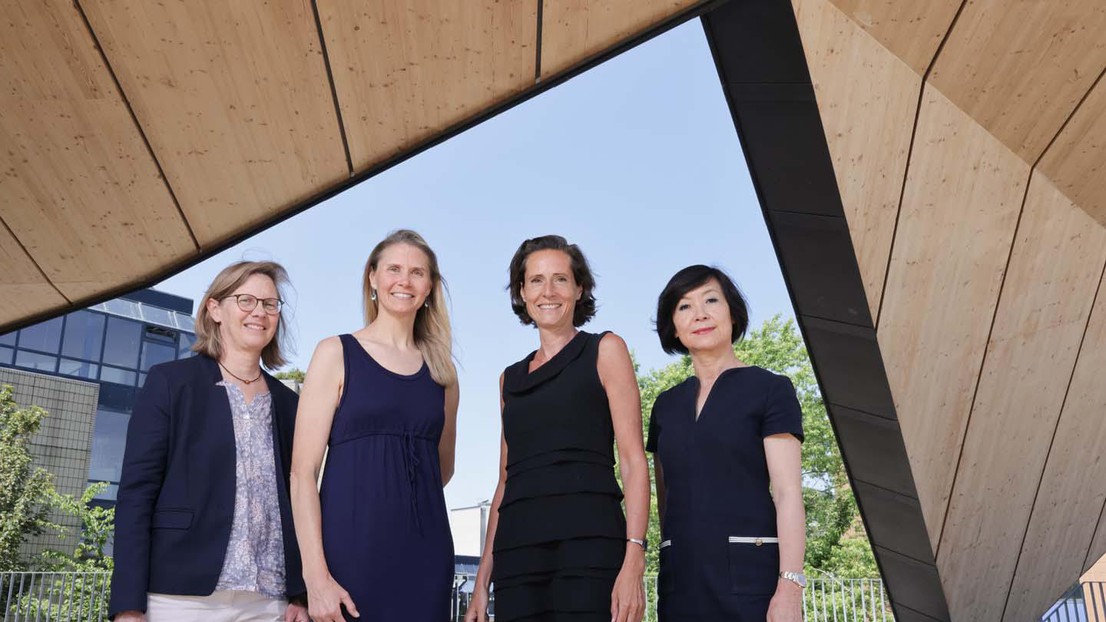We are pleased to share a wonderful interview with Pascale Van Landuyt, innovation mentor Alliance, Industrial Liaison Officer at VPI-EPFL and Innosuisse expert, along with three other EPFL experts. An interview by Patricia Michaud, with photos by Alain Herzog, published on the EPFL website.
Innosuisse, the Swiss innovation promotion agency, relies on specialists to endorse applications for support. The four experts from EPFL are... female experts.
Innosuisse promotes collaboration between science and the market through innovation projects, networking, training and coaching. Innosuisse experts come from a variety of backgrounds, and must have excellent innovation skills in the sciences. Meet Marilyne Andersen, Cara Tobin, Pascale Van Landuyt and Lan Zuo Gillet, the four EPFL experts.
What does the job of Innosuisse expert involve?
Lan Zuo Gillet: The Innosuisse experts are responsible for evaluating applications from companies and universities for innovation support. Depending on the type of application, one or two experts are called in for each dossier. Based on their assessment, the Innovation Council decides whether or not to grant funding. Logically, experts are grouped according to their fields of expertise. An expert's mandate is generally for four years, and can be renewed. They are recruited through calls for applications. Innosuisse also seeks to bring its experts together, to create a broad network.
How important is this role to you?
Cara Tobin: In January 2023, Innosuisse launched a specific call for applications in the field of "net zero" (ed. note: in August 2019, the Federal Council set itself the target of balancing Switzerland's greenhouse gas balance by 2050). That's how I became an expert. Through this, I discovered the wealth and diversity of projects linked to the fight against global warming in Switzerland. Frankly, I had no idea there was so much going on in my field! In fact, because these initiatives are so fragmented, straddling different disciplines, it's generally difficult to get an overview. And yet, this overview not only enables us to join forces where relevant, but also to avoid reinventing the wheel each time, and to use the energy and financial resources at our disposal more effectively. The climate emergency is real. We need to act quickly and in the most concerted way possible.
Pascale Van Landuyt: In my position as Industrial Liaison Officer, I'm usually on the other side of the fence, where collaborative projects are set up. I find it very interesting - and of course rewarding - to be able to see the other side, to have a broader view of trends in technological innovation. And the role of expert is not always limited to approving or rejecting support. In the case of the Innovation Booster (editor's note: an instrument supporting the identification of major challenges and the development of ideas for radical solutions) and the Flagship Initiative (editor's note: aimed at stimulating systemic innovation and transdisciplinary collaboration), experts may also be asked to make recommendations during the course of the project.
Lan Zuo Gillet: I've been active in technological innovation since my doctoral thesis at EPFL in 1992, and I've had first-hand experience of integrating technologies into industrial and financial environments. Since 2008, I have been working 100% in the innovation and entrepreneurship ecosystem, setting up technology partnership projects or accelerating the development of start-ups. The role of Innosuisse expert is in line with my three decades of professional experience, as well as with my activities at the EPFL Innovation Park. It also enables me to gain an overview of innovative new technologies, feed my scientific curiosity and develop new knowledge.
Marilyne Andersen: I see this commitment as part of the external services we provide to our institution. It should also be remembered that this expert appraisal process - like that of evaluating articles submitted to scientific journals - is part of the peer-review process inherent in the academic world.
The four Innosuisse experts at EPFL... are female experts. Is this significant?
Marilyne Andersen: I see both a growing tendency on the part of organizations like Innosuisse to actively seek out women, and a growing tendency for women to respond positively to this kind of call to give back or contribute to a community. In a way, this is gratifying, but what would be even more gratifying is if we no longer had to seek to recruit women specifically, or feel our duty was fulfilled when we had a high female participation rate. Parity, or at least a better overall balance, should simply become the norm.
Lan Zuo Gillet: Of course, when it comes to the technical side of things, men clearly dominate. But women with skills in these areas perhaps stand out more. These days, there are a lot of initiatives to promote equal treatment. In this spirit, I'm against the idea of favoring a woman to fill a quota. The effort should be made upstream: we need to change the way we educate our children, to encourage more girls to go into technical fields.
Cara Tobin: Yes, it's significant. We fill this role by bringing our stories as women in science, innovation and entrepreneurship. By the way, when we evaluate an Innovation Booster - support aimed at stimulating radical innovation in a co-creative way - as Innosuisse experts, we're supposed to check that it respects a certain gender balance and a balanced representation of the different regions of Switzerland. As the faces of Innosuisse, we can be a role model for girls and young women, who see that this path can be for them too. But it's important for boys too. I'm the mother of boys who are planning to study at EPFL. As a mother and a scientist, I can show them that diversity in the workplace is essential.
Pascale Van Landuyt: Along the same lines as Lan, I'd say there's no point in trying to go faster than what the company can offer. Especially as it's not as if nothing is happening. There has been a real evolution in the presence of women in technical fields. EPFL management is committed to a coordinated and targeted approach to promoting equality, diversity and inclusion. Currently, more than a third of new faculty members are women. In the field, I'm also seeing a growing number of female start-ups.
Lan Zuo Gillet: Globally, in developed countries like Switzerland, innovation and entrepreneurship are increasingly appealing to the new generation, women and men alike. We have found, for example, that 41% of candidates for our Innosuisse entrepreneurship training course (Module 2) are female university students or researchers, across all disciplines. As for our events promoting entrepreneurship, 43% are female participants.
As its name suggests, the Innosuisse agency is dedicated to encouraging innovation. Are the conditions in Switzerland right for carrying out this mission?
Pascale Van Landuyt: Innosuisse (formerly CTI) has a long tradition of collaboration between the academic and industrial worlds in Switzerland. In 2022, Innosuisse allocated CHF 181.4 million to national projects, representing 374 approved projects and a success rate of 45%. I believe that one of the success factors of innovation also lies in the fact that Innosuisse provides instruments all along the TRL (Technology Readiness Level) scale: Booster, Innovation Cheque, "classic" projects, Start-Up Innovation Project and Swiss Accelerator.
Cara Tobin: And let's not forget the BRIDGE program, developed jointly by Innosuisse and the Swiss National Science Foundation, which is aimed at researchers at the interface between basic and applied research, and which comes into play before TRL 1. We should also mention support for partnerships with other countries, to encourage collaboration. I'm also pleased to note that, in Switzerland, funding is becoming more decentralized. It used to be that all start-up competitions focusing on the climate took place in Zurich. This is no longer the case.
Lan Zuo Gillet: In fact, Switzerland offers an abundance of support at various levels, demonstrating the importance of innovation and entrepreneurship to the country's leadership position. However, it can be criticized for taking too much of a bottom-up approach; with so many players and so much on offer, it is sometimes difficult for innovators to find their way around. On the other hand, project leaders may be tempted to "stay put", to delay launching their projects.
Marilyne Andersen: There's no shortage of financial incentives in our country. What needs to be encouraged more is the creation of a culture of risk-taking, as is the case in the USA, for example. After all, the norm in the world of innovation is that only one start-up in ten survives.
About EPFL's four Innosuisse experts
Lan Zuo Gillet is Deputy Director of the EPFL Innovation Park, where she oversees training, incubation and acceleration programs for start-ups, as well as workshops on partnerships between start-ups and large corporations. In particular, she is behind the Tech4Trust, Tech4Eva and Tech4Growth initiatives.
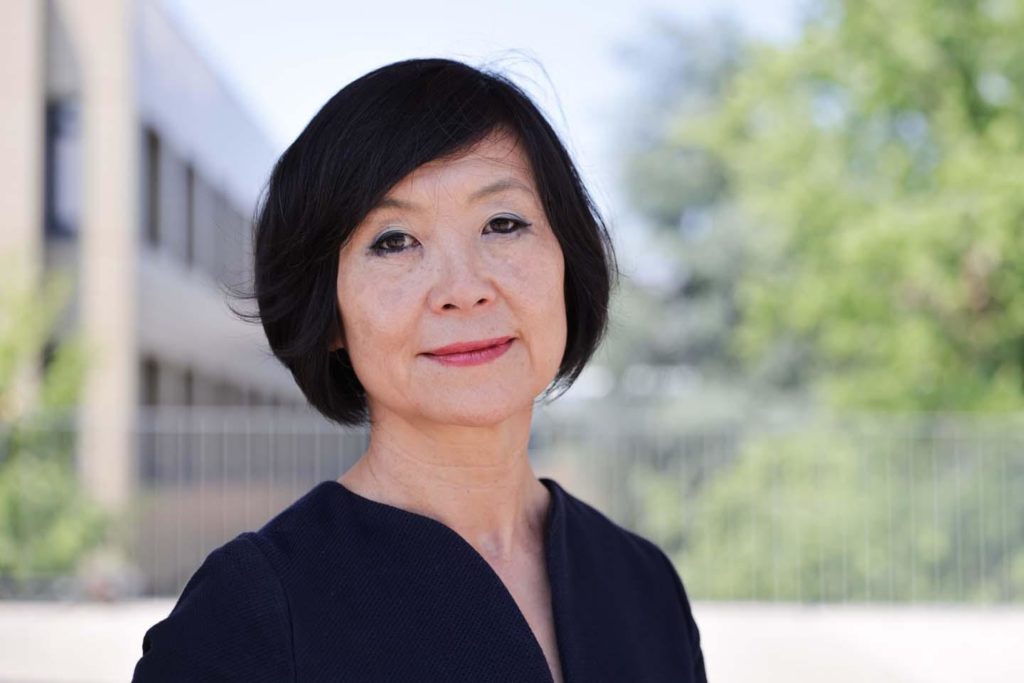
With an engineering degree in materials science and a doctorate in biomedical science, Pascale Van Landuyt is Industrial Liaison Officer at EPFL's Vice-Presidency for Innovation. Her mission: to develop open innovation through partnerships between companies and EPFL.
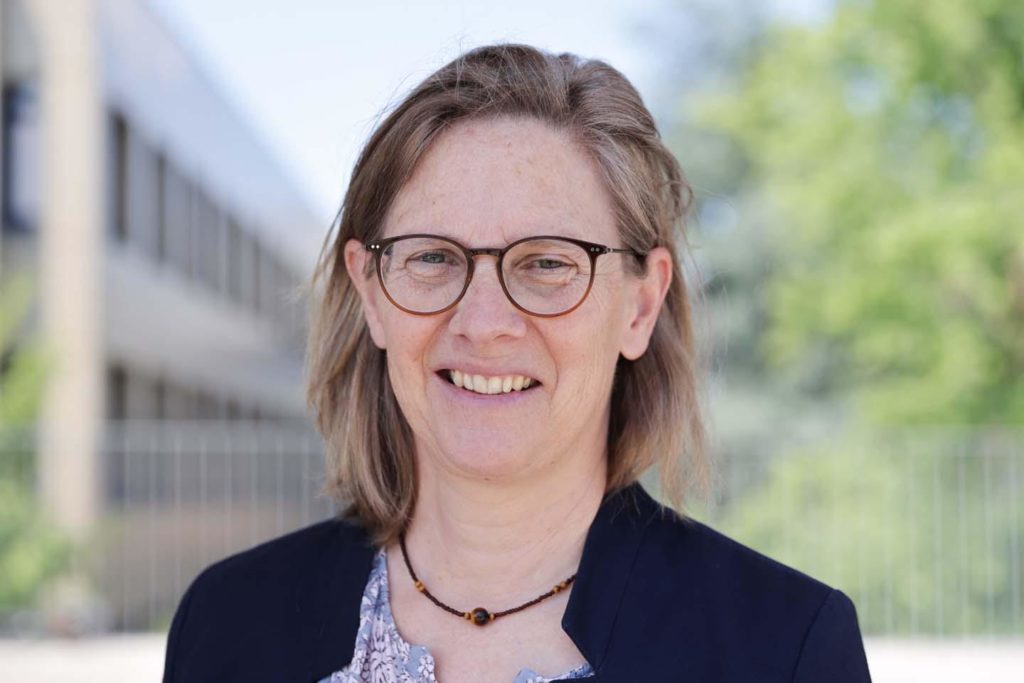
Cara Tobin holds a PhD in environmental engineering. Since 2020, she has been Senior Environmental Scientist at EPFL's EssentialTech Centre, as well as head of the water/sanitation technology program.
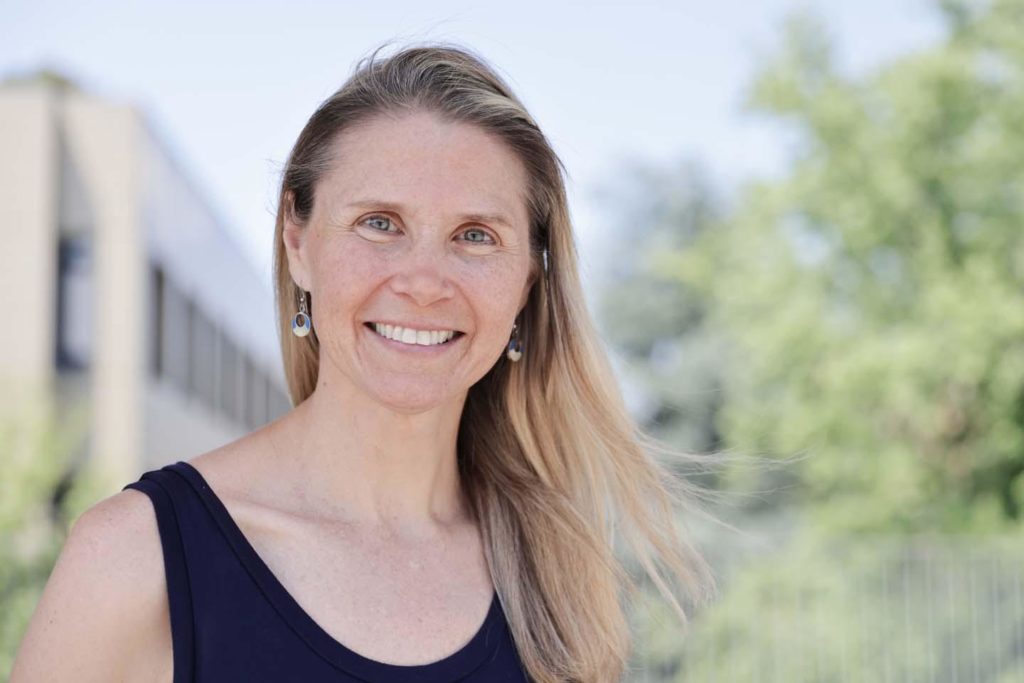
Marilyne Andersen is a physicist by training and a full professor of sustainable construction technologies at EPFL, where she heads the Laboratory for Integrated Performance in Design, which she founded in 2010. Dean of the ENAC Faculty from 2013 to 2018, her research lies at the interface between science, engineering and architecture.
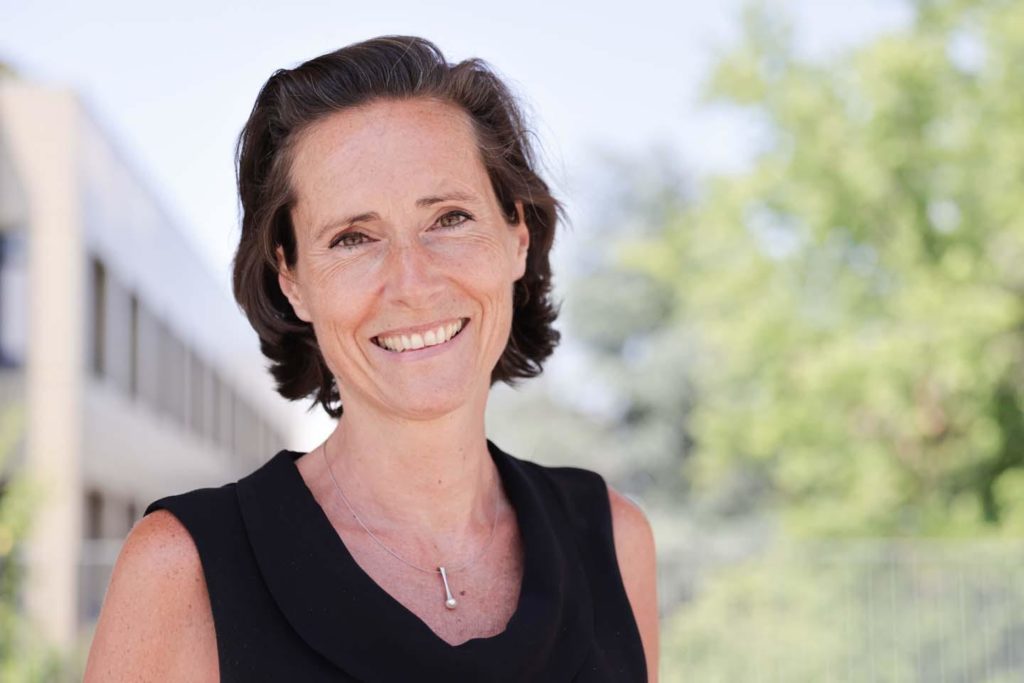
The original interview is here.

